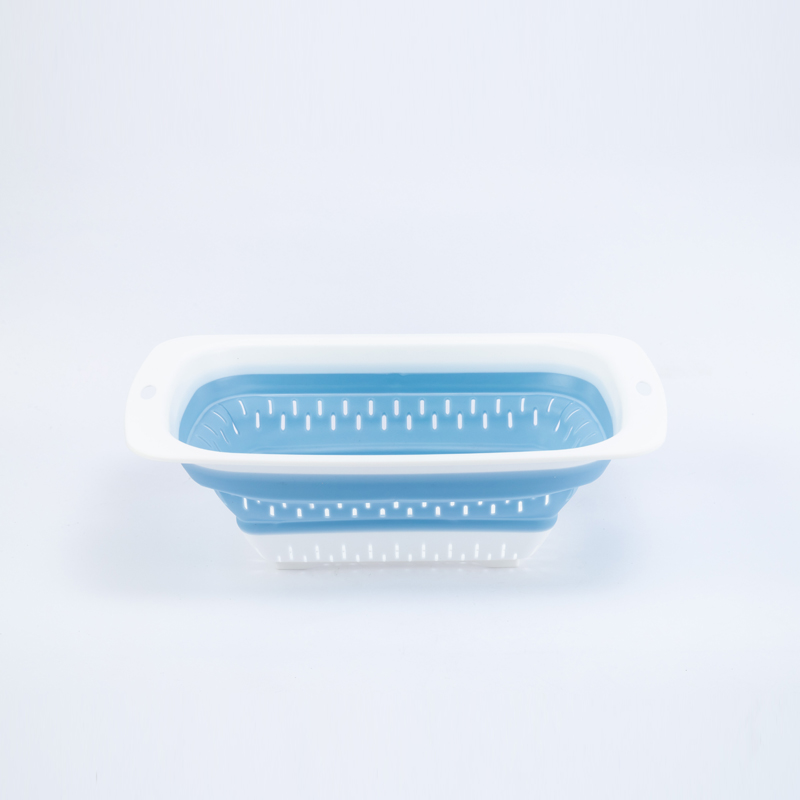

Introduction In the field of plastic product manufactur […]
Introduction
In the field of plastic product manufacturing, mould design plays a central role in determining both productivity and overall cost efficiency. Rectangular Drain Baskets Moulds are widely used to produce durable and practical kitchen and household items. A key question for manufacturers is whether these moulds can be designed with multi-cavity structures to increase production efficiency and meet growing market demand. Exploring this issue requires an analysis of design feasibility, cost implications, and the potential impact on quality control.

The Concept of Multi-Cavity Mould Design
A multi-cavity mould refers to a tool that can produce multiple identical parts within one injection cycle. Instead of a single cavity producing one basket at a time, a mould with two, four, or even more cavities can deliver several pieces simultaneously. This approach is often considered in industries where high-volume production is necessary, as it directly reduces cycle time per unit and raises total output. For rectangular drain baskets, which are frequently used in households and commercial kitchens, the possibility of applying such a design becomes particularly relevant.
Advantages of Multi-Cavity Moulds for Basket Production
The advantage of implementing a multi-cavity system lies in its ability to scale production without proportionally increasing machine hours. More baskets can be produced in the same timeframe, which significantly lowers the cost per unit. This efficiency gain also supports faster responses to market demand and reduces delivery delays. Another advantage is the potential reduction in labor and energy usage, since multiple products are formed in one cycle rather than running repeated single-cavity operations.
Challenges in Adapting Multi-Cavity Designs
Although appealing in theory, creating multi-cavity moulds for rectangular baskets poses several engineering and operational challenges. The large surface area and structural details of drain baskets demand careful control of melt flow and uniform pressure distribution. With multiple cavities, ensuring that every cavity fills completely and consistently can become difficult. Uneven filling may cause variations in wall thickness, surface defects, or even incomplete products. In addition, the cooling system needs to be designed to maintain uniform temperature across all cavities, which increases complexity in manufacturing the mould itself.
Cost and Maintenance Considerations
Multi-cavity moulds generally require higher upfront investment because of the intricate design and precision machining involved. For rectangular drain baskets, the cost may be significant since the mould must withstand repeated cycles and still maintain dimensional accuracy across multiple cavities. Maintenance also becomes more complex, as wear and tear in one cavity can compromise the overall quality of production. Manufacturers must evaluate whether the expected production volume justifies the additional expense, or if a single-cavity or dual-cavity design is more suitable.
Balancing Efficiency and Product Quality
The decision to adopt multi-cavity designs should not solely rely on production speed. Consistency in product quality remains the ultimate goal. For functional items like drain baskets, strength, durability, and proper drainage holes are critical features. If a multi-cavity design compromises these aspects, the efficiency benefits may be overshadowed by higher defect rates or customer dissatisfaction. Therefore, manufacturers often need to conduct trial runs and quality assessments before committing to large-scale use of such moulds.
The question of whether rectangular drain baskets can be efficiently manufactured using multi-cavity moulds does not have a universal answer. While the potential for increased output and reduced costs is significant, the challenges in design complexity, quality control, and maintenance cannot be ignored. Ultimately, the feasibility depends on balancing production volume needs with the assurance of consistent product quality. For companies with high demand and advanced engineering capabilities, multi-cavity moulds can be a valuable investment. For others, optimizing single-cavity or smaller multi-cavity solutions may offer a more sustainable path.
Taizhou Yubo Mould Industry Co., Ltd.